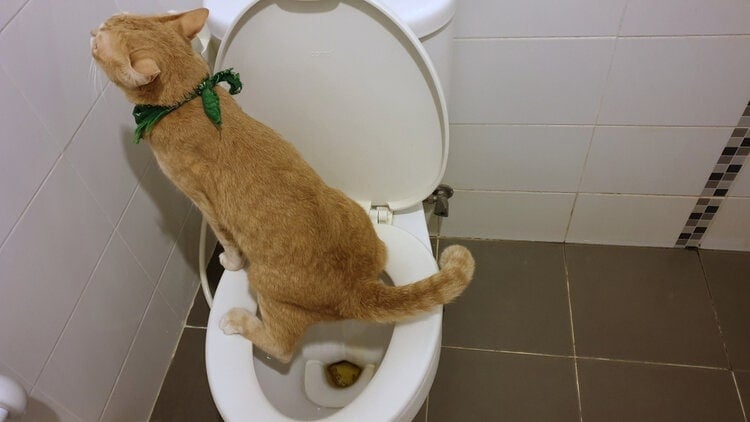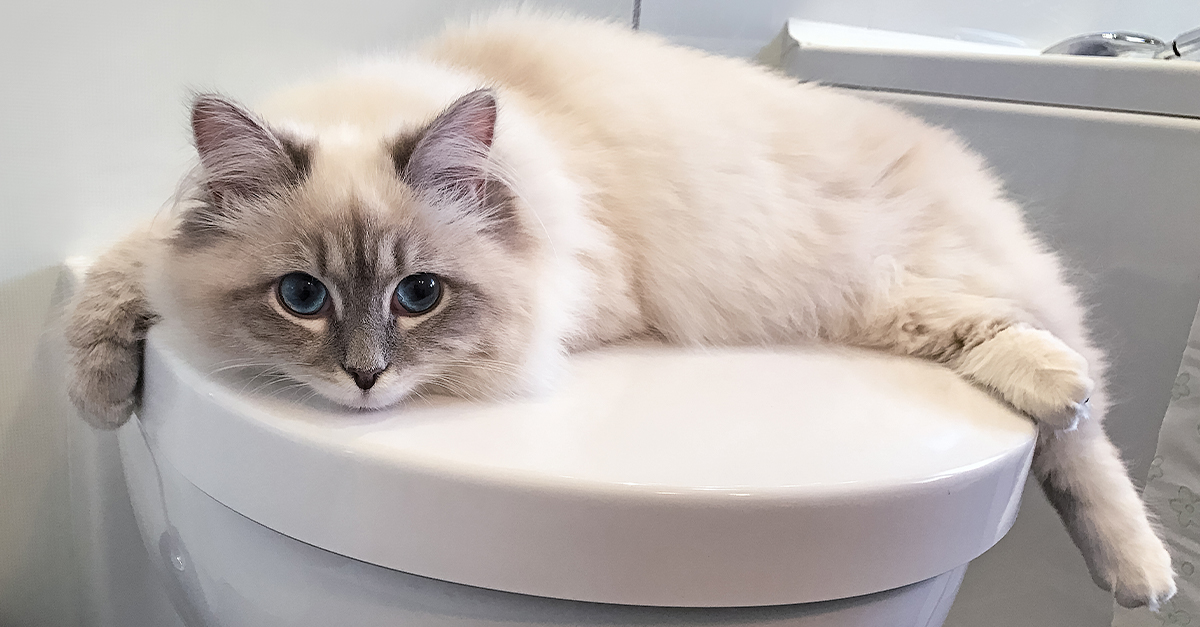Reasons Flushing Cat Poop Down Your Toilet Isn't a Good Idea - Advice for Proper Handling
Reasons Flushing Cat Poop Down Your Toilet Isn't a Good Idea - Advice for Proper Handling
Blog Article
This post following next about Don’t flush cat feces down the toilet is relatively remarkable. Give it a go and make your own personal ideas.

Introduction
As cat proprietors, it's important to be mindful of how we deal with our feline buddies' waste. While it may seem hassle-free to flush feline poop down the toilet, this practice can have damaging repercussions for both the atmosphere and human health and wellness.
Alternatives to Flushing
Thankfully, there are more secure and much more liable methods to take care of feline poop. Take into consideration the following options:
1. Scoop and Dispose in Trash
One of the most common technique of dealing with feline poop is to scoop it right into a biodegradable bag and throw it in the garbage. Make certain to use a devoted trash scoop and throw away the waste without delay.
2. Usage Biodegradable Litter
Select naturally degradable pet cat litter made from products such as corn or wheat. These trashes are eco-friendly and can be safely thrown away in the garbage.
3. Bury in the Yard
If you have a lawn, consider burying cat waste in an assigned area away from veggie yards and water sources. Be sure to dig deep enough to stop contamination of groundwater.
4. Mount a Pet Waste Disposal System
Purchase a family pet waste disposal system especially made for feline waste. These systems use enzymes to break down the waste, reducing smell and environmental influence.
Health and wellness Risks
In addition to ecological concerns, purging feline waste can also posture health and wellness threats to humans. Feline feces might contain Toxoplasma gondii, a bloodsucker that can create toxoplasmosis-- a potentially serious ailment, particularly for expecting ladies and people with damaged immune systems.
Environmental Impact
Flushing feline poop presents unsafe pathogens and parasites into the supply of water, presenting a considerable danger to water ecological communities. These impurities can adversely affect aquatic life and compromise water quality.
Conclusion
Responsible pet possession prolongs beyond offering food and shelter-- it additionally includes proper waste administration. By avoiding purging feline poop down the toilet and selecting alternative disposal approaches, we can lessen our environmental impact and protect human health.
Why You Should Never Flush Cat Poop Down the Toilet
A rose by any other name might smell as sweet, but not all poop is created equal. Toilets, and our sewage systems, are designed for human excrement, not animal waste. It might seem like it couldn’t hurt to toss cat feces into the loo, but it’s not a good idea to flush cat poop in the toilet.
First and foremost, assuming your cat uses a litter box, any waste is going to have litter on it. And even the smallest amount of litter can wreak havoc on plumbing.
Over time, small amounts build up, filling up your septic system. Most litter sold today is clumping; it is made from a type of clay that hardens when it gets wet. Ever tried to scrape old clumps from the bottom of a litter box? You know just how cement-hard it can get!
Now imagine just a small clump of that stuck in your pipes. A simple de-clogger like Drano isn’t going to cut it. And that means it’s going to cost you big time to fix it.
Parasitic Contamination
Believe it or not, your healthy kitty may be harboring a nasty parasite. Only cats excrete Toxoplasma in their feces. Yet it rarely causes serious health issues in the cats that are infected. Most people will be fine too if infected. Only pregnant women and people with compromised immune systems are at risk. (If you’ve ever heard how women who are expecting are excused from litter cleaning duty, Toxoplasma is why.)
But other animals may have a problem if infected with the parasite. And human water treatment systems aren’t designed to handle it. As a result, the systems don’t remove the parasite before discharging wastewater into local waterways. Fish, shellfish, and other marine life — otters in particular — are susceptible to toxoplasma. If exposed, most will end up with brain damage and many will die.
Depending on the species of fish, they may end up on someone’s fish hook and, ultimately on someone’s dinner plate. If that someone has a chronic illness, they’re at risk.
Skip the Toilet Training
We know there are folks out there who like to toilet train their cats. And we give them props, it takes a lot of work. But thanks to the toxoplasma, it’s not a good idea.

I was made aware of that editorial on Don’t flush cat feces down the toilet from a friend on a different website. Loved our article? Please share it. Help another person check it out. Many thanks for your time. Please visit our website back soon.
Click Here Report this page